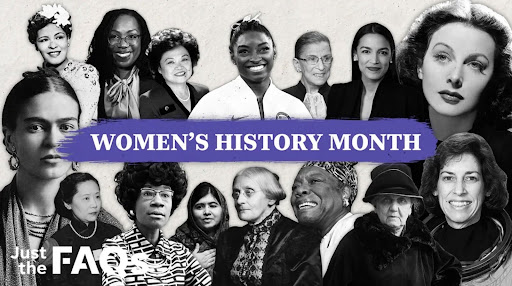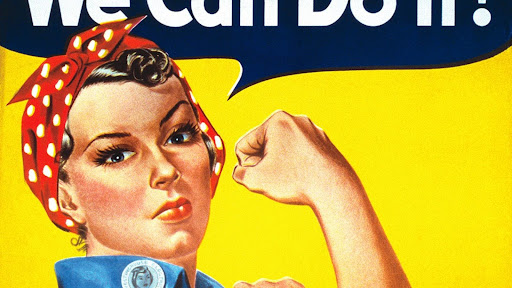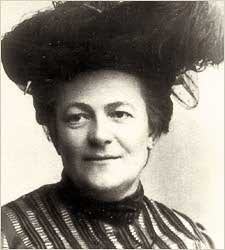
By Natalie Herr ‘25
Women’s History Month is dedicated to women all over the world, especially those who have worked to create a better future. Throughout the month of March, you may learn about many magnificent women who fought for gender and racial equality, workforce justice, household equity, and other social issues.
Although it is a fairly recent decision, the month has a fascinating history. It started as just one day – March 8 – before becoming a week, and finally in 1987, a full month.
One popular myth holds that the origin of the celebration was on March 8, 1857, New York City’s female garment workers organized a strike. The story goes that a group of women from different factories joined together, demanding the right to vote and better working conditions. They eventually formed into their own union. However, there are no records to support this story.

March 8 was actually picked at the Second International Socialist Women’s Conference in 1910. The leader was Clara Zetkin, of German descent. She wanted to mobilize working women in a place separate from the feminist movement. She felt the feminist movement of the time overlooked women who worked and did not grant them the recognition they deserved.
Zetkin picked March 8 to commemorate a workers’ strike in Russia in 1917 that started the Russian Revolution. This day of celebrating women caught on right away in Europe, but took longer in the US. The tensions between the US and Russia are probably what led to the myth of the New York strike becoming popular. Americans felt more comfortable with an origin story based in America.

In the 1970s, the Education Task Force of the Sonoma County Commission on the status of Women in California decided to designate a week to go along with the National Women’s Day on March 8th. They created curriculum to go along with this week. This quickly spread into other counties and states.
On March 8, 1980 president Jimmy Carter issued the very first proclamation that made the week of March 8 National Women’s History Week. Succeeding Presidents continued to make this proclamation until 1987 when Congress passed a public law which declared that March was Women’s History Month. This made the current version of the month official.
Every year the NWHA (National Women’s History Alliance) chooses a theme in which they will use throughout the month of March. Past themes were “Valiant Women of the Vote: Refusing to be Silenced” (2020 & 2021), and “Celebrating Women Who Tell Our Stories” (2022).
For March 2024, the theme is “Women Who Advocate for Equity, Diversity, and Inclusion.” It recognizes women throughout the world who taken action toward a more positive future. However, the only way that could happen is if bias and discrimination are eliminated. According to an advocate from the NWHA, “Women from every background have realized that an uneven playing field will never bring equality or justice. Many feel the critical need to speak up and work harder for fairness in our institutions and social interactions.”
Sources:
https://www.britannica.com/story/why-is-womens-history-month-celebrated-in-march
